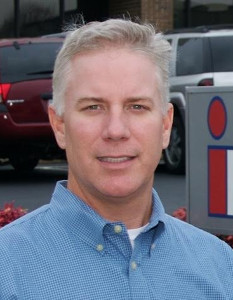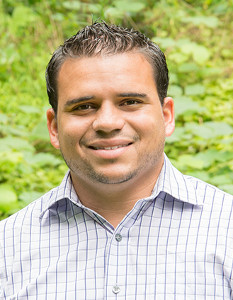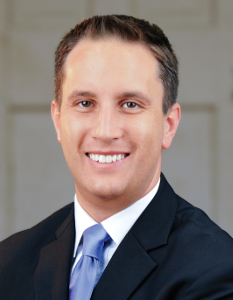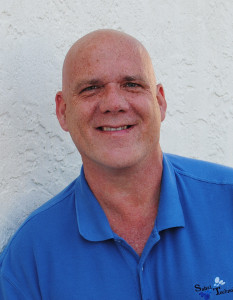Greenville, South Carolina, was once a sleepy, rundown city after its textile mills had been decimated by foreign competition. Now foreign companies are once again having a big impact on the economy of Greenville. But this time it is a positive impact greater than many of us could have imagined. BMW and scores of its suppliers have opened their doors in the area. Michelin opened its North American headquarters here. Now, numerous other foreign companies also call Greenville home due to its skilled workforce and business-friendly environment. Meanwhile, countless citizens of Greenville interact with foreign clients and/or suppliers every day. What do Greenville’s leaders say about working with foreign clients or suppliers? Here is some advice from eight of Greenville’s business leaders.
Mark McClure

Mark McClure, International Plastics
V.P. of Operations at International Plastics
International Plastics is an ISO 9001:2008 certified manufacturer, importer and wholesale supplier of plastic bags and flexible packaging.
What is the most difficult challenge you face when working with foreign clients or suppliers?
Qualifying new suppliers in China is challenging, as all of them promise best quality and price, etc. First, it’s sometimes difficult to know if you are dealing with a broker or export marketing company versus an actual plant. If you vetted them properly and they are the actual plant, you will find that they always throw out very low prices to get an initial order. Almost always they try to go up on subsequent orders. Some plants will have quality inconsistencies, but the larger plants with ISO-type certifications are getting better and more in line with expectations of U.S. customers. The other concern is how will they deal with quality issues.
We buy both stock items and custom-made products for customers. Issuing credit on defective stock products is fine and not normally a problem. However, if they make mistakes or have defective quality on a custom-made item (usually printed and/or custom sizes), it’s not enough to just credit us so we can credit the customer . . . . They still have a need of bags and need replacements fast. Is the plant going to quickly remake the bags and air freight the products over? These issues need to be agreed upon up front so that both parties know the expectations.
Fortunately for us we have had many very long relationships with plants and have smooth import experiences even when a problem arises (which is rare). We do open up new relationships, of course, and those are the issues we are concerned with when we do.
What do you do in order to solve that problem?
Vet, vet, vet, and vet some more. Share the expectations up front, cover the scenarios, and try to get in writing what is expected and how problems will be treated.
If we have problems early on with a plant, we tell them to make it right or we will never order again. Most of the times that is enough leverage to get them to do what is right when necessary. It’s the same when they try to increase prices. We tell them we switched because of the low price, and we were happier with old supplier . . . . Hopefully they come back with the same lower prices.
Learn More
Doing business in France or with French people? Discover our tips for navigating French business culture from our article: Excusez-Moi, Monsieur… Communication In French Business Culture.
Ramon Nieves-Lugo

Ramon Nieves-Lugo, UniComm Media Group
CMO at UniComm Media Group
UMG is a full service, Hispanic ad agency based in Greenville, SC.
What is the most difficult challenge you face when working with foreign clients or suppliers?
The most difficult challenge is to understand their professional and ethics culture. The business environment is very different outside the United States. Working in a different business environment and set of rules can be frustrating.
What do you do in order to solve that problem?
I had to learn to adapt very quickly. Learning the culture and how business operates was my best option. It gave me the insight to understand the client and to do my work successfully.
Learn More
Ramon Nieves-Lugo runs a marketing firm that helps companies reach American Hispanics. We also interviewed him for our article: The Untapped Market: Hispanics of the United States. Check it our for his fascinating insights on this vibrant market!
Keith Giddens

Keith Giddens, DHG
Tax Partner at Dixon Hughes Goodman
With more than 2,000 people in 13 states, Dixon Hughes Goodman ranks among the nation’s top 20 public accounting firms.
What is the most difficult challenge you face when working with foreign clients or suppliers?
First off, working with foreign clients or suppliers is challenging but beneficial. The biggest challenge is the difference in negotiation tactics. For example, in America, we are typically decisive, and we inform the other party relatively quickly as to whether or not we will do business together. However, in China, the situation is much different. You may need to build a relationship for months or even years before any actual business is transacted.
Also, when negotiating pricing, Americans may negotiate within a range of 10%-15% of the initial asking price. However, I find in China that the differential between the first price and the final price could vary by as much as 70%.
What do you do in order to solve that problem?
You have to make a conscious decision in the beginning that you are willing to invest long term. If you think you can make a “quick buck,” you will be sadly disappointed. I constantly need to remind myself to show poise, patience, and understanding. Sometimes silence truly is golden (something American businessmen rarely showcase).
John Lummus

John Lummus, Upstate South Carolina Alliance
President/CEO of Upstate SC Alliance
Formed in 2000, the Upstate South Carolina Alliance is a public/private regional economic development organization designed to market the dynamic, commerce-rich northwestern corner of South Carolina.
What is the most difficult challenge you face when working with foreign clients or suppliers?
I would say that the biggest challenge is making sure that you understand the customs and the culture that the foreign client comes from.
What do you do in order to solve that problem?
This takes a little bit of homework, but it helps to learn about their economy, governmental system, and also cultural aspects like food preferences. If you take this into account, it makes for a better and more productive meeting or visit.
William Haynes

William Haynes, Sabai Technology
CEO/Founder of Sabai Technology
Sabai Technology focuses on the development and distribution of wireless network equipment for use with VPN clients.
What is the most difficult challenge you face when working with foreign clients or suppliers?
With foreign customers, customs is, by far, the most difficult challenge. When we began, we shipped internationally with USPS, and packages got lost. When we moved to using FedEx for international, packages went through, and our new issue was the occasional challenge in customs. Spain and Brazil are particularly difficult for this.
With foreign suppliers or programmers, you need to be willing to invest time in understanding culture. They are not going to have an American mindset, and this can be both good and bad. For example, they may have a great work ethic but expect lots of vacation because of government sanctioned holidays. For example, China is basically closed for business around their New Year celebration, and it’s almost impossible to get anything done during that 10 day span.
What do you do in order to solve that problem?
Working with FedEx solved a lot of our problems around international shipping. They are professionals and responsive. They know exactly where the package is and can do some amazing things. We had a customer in Japan order from us on Friday night, which was Friday morning our time. We shipped out the package and on Monday morning, when they were leaving for work, the package was on their front step. That’s just amazing!
Regarding foreign culture, visits and reading to understand the culture will help you in navigating it well. Little things like a wedding present or baby gift connect you in a personal way that transcends culture. The vendor or supplier will also appreciate the personal touch.
Ken Zwerdling

Ken Zwerdling, Foreign Staffing
Founder of Foreign Staffing, Inc.
Foreign Staffing, Inc. is a leader in providing United States Staffing and Recruiting, International Staffing and Recruiting, Payroll in Over 100 Countries, and has a full library of Global Business Resources.
What is the most difficult challenge you face when working with foreign clients or suppliers?
The greatest challenge when working with foreign clients is the difference in business culture—how we conduct business. Companies from different countries do not conduct business the same way as we do in the United States. This includes timeliness of responses, keeping us informed on the status of projects, and the paying of attention to detail. This difference of business culture and communication varies greatly in France, Germany, India, China, and Latin and South America
What do you do in order to solve that problem?
In order to minimize the miscommunications of cultures when conducting business around the world, we studied existing publications by country of common business practices. A resource we commonly use is Kiss, Bow, or Shake Hands—written by Morrison and Conway. It includes business cultures and customs in almost 100 countries.
Chris Davis

Chris Davis, International Plastics
Sales & Operations Manager at International Plastics
International Plastics is an ISO 9001:2008 certified manufacturer, importer and wholesale supplier of plastic bags and flexible packaging.
What is the most difficult challenge you face when working with foreign clients or suppliers? And what do you do in order to solve that problem?
Most Asian plants have learned to lead with pretty aggressive pricing, duplicate the look of the incumbent packaging suppliers, and have quick lead times.
The first hurdle then for many seems to be the payment terms. Most Asian companies will ask for payment up front. This is very risky as often most people really don’t know much about who they are really dealing with. Is it a broker, a packaging distributor, or an actual manufacturing plant. Most of the well established companies will ultimately take the job and go to work for a small percent down and the balance on receipt of the goods, eliminating a lot of the risk of getting something other than what you believed you were going to get.
However, the trick for many seems to be, once you have an order or two under your belt, some plants will attempt to increase pricing for any host of reasons. Sometimes legitimate reasons, other times for reasons that make no sense at all. You just have to be prepared to walk away and start the process all over again if it doesn’t make strong financial sense at that point.
And regarding quality, should the product received have a serious issue or even fail, will the plant make it right? What I have seen over the years is that most manufacturers will stand behind the product, but most brokers and distributors will only do so to a certain point. The amount of money involved being the determining factor. Have a claim of a few hundred dollars, usually no big deal. Have an issue of several thousand or more dollars, and you will quickly separate the plants from the middle men.
All in all, it really pays off in the long run to press hard and ask a lot of questions and as [Mark McClure] said, vet them and do your due diligence. Otherwise you could really be left holding the bag so to speak.
Thomas Borheck

Thomas Borheck, e-SUPERTEC
Owner of e-SUPERTEC, LLC
Development of innovative, cost-conscious, and efficient Marine Propulsion Programs for Medium to Large Vessels (Pleasure & Fishing Yacht Industry).
What is the most difficult challenge you face when working with foreign clients or suppliers?
The biggest problem always was and increasingly is TRUST. The seller has to trust that the buyer will send the money. The buyer has to trust that the product is as discussed and will be sent on time and professionally.
What do you do in order to solve that problem?
I built strong long-lasting relationships with clients around the world. Depending on the nature of the business, it has to be done by visiting the clients (if the margin allows). Internet video talk and video conferences, which I tried from the very beginning, are a nice “side dish” but did not help me too much. Communication in the NATIVE LANGUAGE increased chances of a fast contract by 70% (best guess). Product presentation using Internet video is a must when selling complex products.
I rarely use things like a bank letter of credit or transaction tools and insurance. There are multiple ways of protecting yourself from loss with transactions, but they are very time consuming and often costly. If there is no minimum base of confidence in the business partner, it is often a waste of time to even discuss product details.
Darren Jansen, Business development and content manager for IVANNOVATION has a lifetime love for tech and languages. At IVANNOVATION he helps software developers get professional localization for their apps, software, and websites. On his time away from the office, he can be found hiking the Carolina wilderness or reading Chinese literature.



